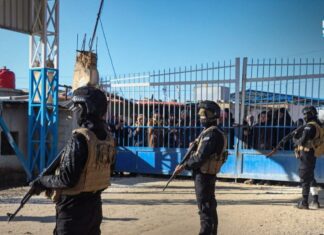On Wednesday, U.S. Ambassador to the UN, Linda Thomas-Greenfield, and the Turkish president’s spokesman Ibrahim Kalin reached a deal in Ankara. The two sides agreed to work together to ensure the delivery of humanitarian aid to northern Syria through the Bal al-Hawa crossing is not interrupted by Russia.
“Joint efforts should be made to remove obstacles to the delivery of cross-border UN humanitarian aid to Syria via Turkey,” Turkish President Recep Tayyip Erdogan’s office said in a statement.
Russia recently suggested it opposes the renewal of a UN resolution, due on July 11, and could veto an extension at the UN that enables the movement of supplies through the last remaining border crossing into the northwestern province of Idlib.
On Thursday, the U.S. ambassador met representatives of non-governmental organizations, as well as Syrian refugees in Turkey. She also met with the UN’s Deputy Regional Humanitarian Coordinator for the Syrian Crisis, Mark Cutts, and a number of aid workers. The US ambassador to the UN also announced an additional $239 million in humanitarian aid for the Syrian people.
Currently, around 1,000 U.N. trucks a month enter Syria at the single crossing point of Bab al-Hawa to deliver food, medical supplies, and humanitarian aid. “It’s going to be a disaster if the Security Council resolution is not extended. We know that people are really going to suffer,” said Mark Cutts, U.N. deputy regional humanitarian coordinator for the Syria crisis.
What could a veto from Russia to close the only remaining border crossing which delivers aid to the Syrians in Idlib mean? Idlib is home to around 4 million Syrians. Russia wants all assistance channeled through Damascus. More than 1.8 million people could be deprived of food aid, with more than 2.3 million will lose access to clean or potable water. The disruption of bread subsidies in hundreds of camps and the deprivation of more than one million people from obtaining bread on a daily basis. Support for the camps from aid organizations will decrease to less than 25%, and the inability to provide support to repair the damage within the camps.





